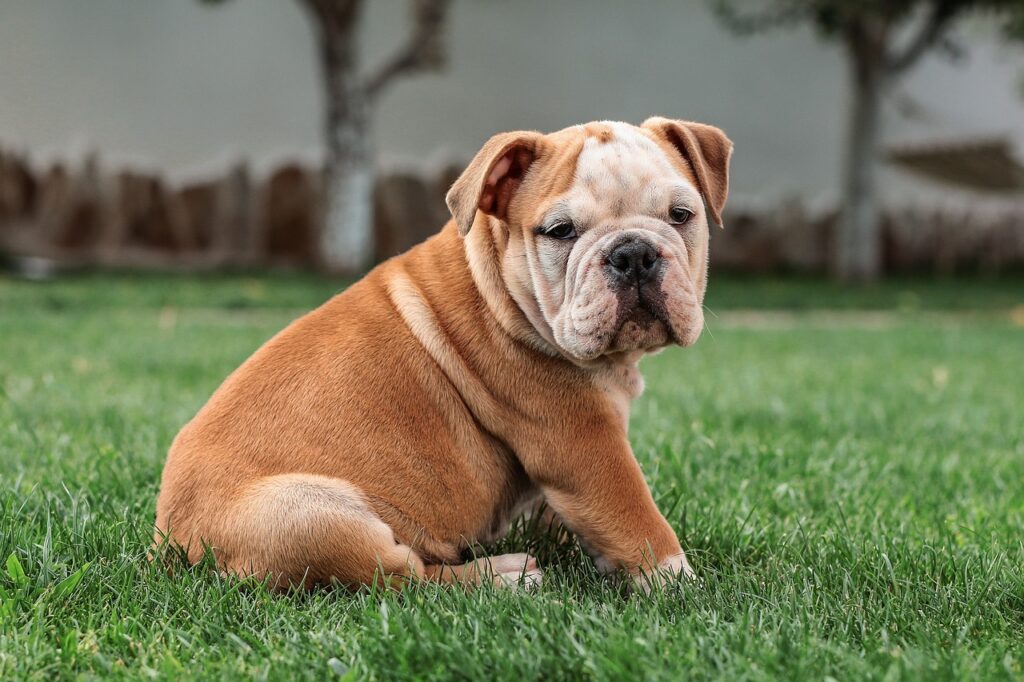Last updated on September 2nd, 2024 at 05:36 pm
Bulldogs: A Unique, Fun, and Lovable Dog Breed

Bulldogs are a popular dog breed recognized worldwide for their adorable, wrinkled faces, stocky build, and calm demeanor. Although they may look tough on the outside, Bulldogs are gentle, loyal, and affectionate companions who fit well into family life. Whether you’re considering getting a Bulldog or are just curious, this article covers everything you need to know about this lovable breed, including their history, temperament, health, and care.
A Fascinating History: From Bull-Baiting to Beloved Pets
Did you know that Bulldogs were originally bred in England for bull-baiting? This cruel sport involved Bulldogs gripping onto bulls, displaying their strength and courage. According to the American Kennel Club (AKC), this began around the 13th century. Back then, Bulldogs were known for their toughness and tenacity, making them great at this brutal job.
However, when bull-baiting was banned in 1835, Bulldogs faced a big change. Breeders focused on making them more gentle and affectionate, and over time, they became the calm, lovable companions we know today. The Bulldog’s evolution from fierce fighters to loyal family pets is a perfect example of how selective breeding can change a breed’s personality.
If you’re interested in getting a Bulldog puppy, be prepared for a unique challenge. Bulldogs often need to be delivered by Cesarean section because their large heads make natural birth difficult. The Bulldog Club of America emphasizes that responsible breeders take extra care to ensure both the mother and puppies stay healthy during delivery.
Bulldog Temperament: Calm, Loyal, and Full of Love
Despite their tough look, Bulldogs are famous for being sweet and easygoing. They love being around people and are especially great with kids, making them ideal family dogs. Their patience and calm nature mean they can handle even the most energetic children without getting too stressed. No wonder they’re known as “people dogs”!
Bulldogs are also incredibly loyal. They bond closely with their families and love being close to them. While they might be a bit shy around new people at first, Bulldogs warm up quickly and become friendly and affectionate. They’re not big on running around all day—Bulldogs are happiest when lounging around the house, making them great pets for laid-back households.
However, Bulldogs can be stubborn, which can make training a bit challenging. According to the Bulldog Club of America, patience and positive reinforcement are key when teaching them commands. Once you earn their trust, Bulldogs will try their best to make you happy.
Bulldog Health: Breathing Issues and Other Concerns
Bulldogs have a distinctive flat face, making them a brachycephalic breed. Unfortunately, this adorable look comes with some health challenges. According to the American Veterinary Medical Association (AVMA), Bulldogs can struggle with breathing because their short noses make it harder to get enough air. This can lead to snoring, wheezing, and even difficulty breathing, especially in hot weather or during exercise.
Because of this, Bulldogs are sensitive to heat and need to be kept cool during the summer. Always make sure they have plenty of water, shade, and rest to avoid heatstroke. Bulldogs also aren’t built for vigorous exercise, so stick to short, gentle walks.
Bulldogs are famous for their wrinkles, but those cute folds need regular cleaning. VCA Animal Hospitals recommend cleaning your Bulldog’s wrinkles often to prevent infections and irritation. Dirt and moisture can get trapped in the folds, leading to skin problems, so keeping their wrinkles clean is an important part of their care.
Another health issue Bulldogs face is hip dysplasia, where the hip joint doesn’t fit properly into the socket. This can cause pain and mobility issues. Regular vet check-ups, a healthy diet, and light exercise can help manage this condition and keep your Bulldog feeling good.
Bulldog Care: Low-Energy and Low-Maintenance
If you’re looking for a dog that doesn’t need a lot of exercise, a Bulldog might be the perfect choice for you. Bulldogs are known for their low energy levels and don’t need a lot of physical activity to stay happy. A short walk around the block or some playtime in the yard is usually enough for them.
According to PetMD, Bulldogs enjoy lounging and are content to spend most of their day relaxing indoors. This makes them great for people who live in apartments or homes with small yards. Just remember that even though they love to relax, Bulldogs still need some exercise to avoid gaining too much weight.
When it comes to grooming, Bulldogs are fairly low-maintenance. Their short coats don’t require a lot of brushing, but their wrinkles need regular cleaning to avoid infections. Bulldogs can also be prone to dental issues, so regular teeth cleaning is a good idea.
Bulldogs and Families: The Perfect Match
Bulldogs are often seen as one of the best breeds for families, and it’s easy to see why. Their gentle and patient nature makes them wonderful companions for children, and their loyalty ensures they are always there for their owners. According to the AKC, Bulldogs are especially good with young kids because they’re tolerant and rarely get aggressive. This makes them a safe and reliable choice for families.
Bulldogs usually get along well with other pets too, especially if they’re socialized early. They can be friendly with other dogs and even cats, making them a versatile addition to any home. However, Bulldogs don’t like being left alone for long periods, so if you have a busy schedule, consider finding a pet sitter or daycare to keep them company.
Bulldog Training: Gentle but Firm
Training a Bulldog can require some patience, as they can be a bit stubborn at times. However, they are eager to please and respond well to positive reinforcement. According to DogTime, Bulldogs do best with reward-based training methods that use treats, praise, and affection. Harsh training techniques won’t work well with this breed and could cause behavioral problems.
Start training your Bulldog early, focusing on basic commands and socialization. Bulldogs can sometimes be a bit territorial, so early socialization helps them become more comfortable around other dogs and people. Crate training can also be helpful, as Bulldogs enjoy having a safe space to relax when they need a break.
FUN FACT
Here’s something you might not know: Bulldogs aren’t natural swimmers. Their heavy bodies and short legs make it difficult for them to stay afloat in water. If you take your Bulldog near a pool or the beach, make sure to keep a close eye on them or even use a dog life jacket to keep them safe.
Conclusion
Bulldogs are one-of-a-kind dogs with their own special charm. From their unique appearance to their calm and loving nature, Bulldogs make excellent companions for families, individuals, and even first-time dog owners. They’ve come a long way from their days of bull-baiting, evolving into the gentle, loyal pets we know and love today.
While Bulldogs do come with some health challenges, with the right care and attention, they can live happy and healthy lives. Their laid-back nature makes them easy to care for, and their deep bond with their owners makes them a joy to have around. If you’re looking for a dog that’s equal parts adorable, loyal, and full of character, a Bulldog might just be the perfect pet for you.
